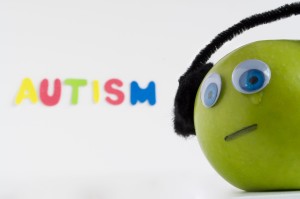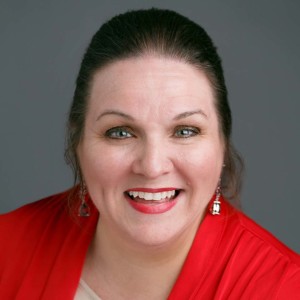Neuroatypical is the New Autism

Neuroatypical is the new “Autistic”. The English language is filled with words that are specific and exquisite. Other words are vague and nonspecific. Autism is one of the vague concepts that fails to articulate a specific meaning beyond the obscure association with disability. Upgrade your language and concepts to include “Neuroatypicality” to open your mind to a world of possibilities … and embrace a new more socially appropriate era of neurodiversity.
 The word “Autism” is a lot like the common “cold”. What does it mean to have a cold? A cold could be a viral infection, bacteria in your lungs or nasal passage, Lyme disease, or allergy symptoms. What these things have in common are some symptoms like stuffy nose, sore throat, swollen glands, perhaps a fever or headache. But the actual condition causing those symptoms is very different for each person. And the treatment is very different as well.
The word “Autism” is a lot like the common “cold”. What does it mean to have a cold? A cold could be a viral infection, bacteria in your lungs or nasal passage, Lyme disease, or allergy symptoms. What these things have in common are some symptoms like stuffy nose, sore throat, swollen glands, perhaps a fever or headache. But the actual condition causing those symptoms is very different for each person. And the treatment is very different as well.
And that is the danger of the catch-all phrase, “Autism”. When we group so many different types of conditions together, we face the dilemma of knowing how to treat. Calling a serious infection, like bacterial meningitis, by the name “common cold” will interfere with proper treatment. Just because the symptoms are the same, does not mean that the same treatment applies.
So, too, it is with Autism. Some of the characteristics that are common to the folks who are assigned the bulk diagnosis of Autism Spectrum Disorder include sensory sensitivity, repetitive behaviors, and inability to identify the facial expressions or emotions of others. Other characteristics often associated with the notion of Autism are tendency toward allergy, digestive challenges, and potential changes in CSF or Cerebrospinal Fluid. But the spectrum of symptoms is so diverse that the terminology of Autism Spectrum Disorder is misleading. Learn more at Autism Speaks.
Finding Solutions
 Orchard Human Services, Inc. is a nonprofit that works with children with a variety of disorders including neuroatypicality. One of the big challenges Orchard has when taking on new clients is getting down to what is really going on with the child. So many people stop at the diagnosis. But Orchard sees through the limiting concept of diagnosis and looks to underlying developmental, nutritional, behavioral, and even epigenetic factors to find clues to effective treatment and intervention.
Orchard Human Services, Inc. is a nonprofit that works with children with a variety of disorders including neuroatypicality. One of the big challenges Orchard has when taking on new clients is getting down to what is really going on with the child. So many people stop at the diagnosis. But Orchard sees through the limiting concept of diagnosis and looks to underlying developmental, nutritional, behavioral, and even epigenetic factors to find clues to effective treatment and intervention.

Darleen Claire Wodzenski, MS ESE, MA CMHC, PhD, NCC.
According to Dr. Darleen Claire Wodzenski, a Clinical Mental Health and Special Education Specialist at Orchard, the diagnosis of Autism only leads to more questions before coming up with an effective treatment plan. Dr. Darleen Claire shared how children with Autism may be highly intelligent, focused, and capable; they may be shy and sensitive to light and sound; others may be very loving but sensitive to textures, new places, and new people.
The key, according to Dr. Darleen Claire, is to understand the child. She works toward understanding how the child views and experiences the world, what the child loves to do, and what special gifts and talents the child possesses. We we understand individuals and their personal experiences and perspectives of the world, we become equipped to address the specific opportunities and challenges that exist in their world.
Dr. Darleen Claire shared that “Understanding the concept of neuroatypicality allows me to understand that the child may process the world a bit differently. Something about that child’s neurological processing may be atypical. But beyond that, each child diagnosed with Autism Spectrum Disorder is a unique individual. Some neuroatypical children are loving and fun; others are thoughtful and intense; and still others are agitated and unsettled. My job is to find out each child’s strengths, weaknesses, and desires for the future. Then we look for the underlying issues that may contribute to areas of distress. By doing a little detective work, we often find strategies to improve circumstances and life experience for the child and parents.”
Why ‘Neuroatypical’ is Better

So the term “neuroatypical” addresses unique characteristics about neurological processing. Beyond neuroatypicality, Orchard Human Services will evaluate a child for a wide variety of traits, abilities, characteristics, and tendencies including:
- Responsiveness to verbal communication
- Compassion and empathy
- Ability to self-calm
- Ability to focus
- Awareness of feelings of self
- Awareness of thoughts and feelings of others
- Social awareness, manners, and lawful behavior
- Factors that trigger sensory overload
- Soothing and calming factors
Working in this way allows for Dr. Darleen Claire and the Orchard staff to set forth a specific intervention or treatment plan that involves collaborating with other professionals and making changes that follow the child from home to school to public settings. A typical Orchard intervention plan might include strategies that include:
- Modified or enhanced IEP or Section 504 Plan provisions to support the child’s functional needs
- Social and emotional curriculum and lesson plans that apply from home to school to public places
- Environmental changes in response to epigenetic polymorphisms
- Behavior management strategies for parents, teachers, other care providers
- Specific mindfulness, megacognition, attention, and focus training and intervention
- Developmental intervention for social, emotional, and attachment capacities
- Child therapy – mental health, developmental, behavioral, attentional
- Referrals to ABA therapist, Occupational Therapist, Physical Therapist
- Evaluation by Developmental Pediatrician
 So if you or someone you know is dealing with a disorder that has been diagnosed as an Autism Spectrum Disorder, ASD, or even an Attachment Disorder, such as Reactive Attachment Disorder RAD or Disinhibited Social Engagement Disorder DSED, then consider looking beyond the diagnosis to what is underneath. Inside the child is a wealth of knowledge about that child’s unique gifts and abilities, personal desires, and challenges that require intervention. Recognizing how children can be neuroatypical is a good first step in understanding the wide variation of abilities and challenges associated with Autism, and is more likely to lead to an effective intervention or treatment strategy.
So if you or someone you know is dealing with a disorder that has been diagnosed as an Autism Spectrum Disorder, ASD, or even an Attachment Disorder, such as Reactive Attachment Disorder RAD or Disinhibited Social Engagement Disorder DSED, then consider looking beyond the diagnosis to what is underneath. Inside the child is a wealth of knowledge about that child’s unique gifts and abilities, personal desires, and challenges that require intervention. Recognizing how children can be neuroatypical is a good first step in understanding the wide variation of abilities and challenges associated with Autism, and is more likely to lead to an effective intervention or treatment strategy.
Visit Orchard Human Services, Inc. to learn more about better ways to help infants, children, and adolescents with a diagnosis of Autism.
Dr. Darleen Claire Wodzenski provides direct services around the greater Metro Atlanta area including Alpharetta, Marietta, College Park, Cumberland, and Hiram. She provides intervention and consultation services nationwide by way of telephone and internet. She can be reached at 770-686-0894 or at email Dr.Darleen@OrchardHumanServices.org







